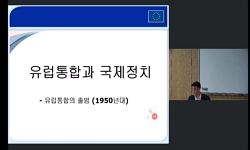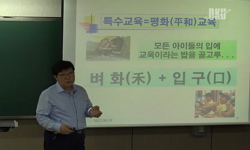발행금액이나 청약의 권유를 받는 대상자의 수를 기준으로 부과되는 증권신고서 제출의무를 피하기 위하여 하나의 발행을 여러 번으로 나누어 진행할 수 있는데, 이러한 잠탈을 막기 위해...
http://chineseinput.net/에서 pinyin(병음)방식으로 중국어를 변환할 수 있습니다.
변환된 중국어를 복사하여 사용하시면 됩니다.
- 中文 을 입력하시려면 zhongwen을 입력하시고 space를누르시면됩니다.
- 北京 을 입력하시려면 beijing을 입력하시고 space를 누르시면 됩니다.
https://www.riss.kr/link?id=A99724318
- 저자
- 발행기관
- 학술지명
- 권호사항
-
발행연도
2012
-
작성언어
Korean
-
주제어
통합 ; 발행공시 ; 증권신고서 ; 면제거래 ; 합산 ; 사모발행 ; Integration Doctrine ; integration ; exempt offering ; private offering
-
등재정보
KCI등재
-
자료형태
학술저널
-
수록면
29-56(28쪽)
- 제공처
-
0
상세조회 -
0
다운로드
부가정보
국문 초록 (Abstract)
우리 자본시장법에서는 증권신고서 제출의무의 잠탈을 막기 위한 합산제도는 있으나 아직까지 통합은 인정하지 않고 있는데, 규제 대상자들에게는 증권신고서 제출의무를 명확하게 알려 준다는 점에서 친화적이나, 증권신고서 제출의무에 대한 잠탈 시도를 봉쇄할 수 없으며, 거래구조를 조작함으로써 규제를 피하면서 피해자를 양산할 가능성을 남겨 두고 있다. 현행 자본시장법의 운영에 있어 투자자 보호보다 발행인들과 규제당국의 편의에 치우치고 있지 않은지 반성할 필요가 있으며, 이 점에서 미국 증권규제에서의 거래통합기준의 내용과 실제는 참고가 될 수 있다.
발행금액이나 청약의 권유를 받는 대상자의 수를 기준으로 부과되는 증권신고서 제출의무를 피하기 위하여 하나의 발행을 여러 번으로 나누어 진행할 수 있는데, 이러한 잠탈을 막기 위해서 미국 SEC(Securities and Exchange Commission)에서는 일정한 거래를 통합하여 하나의 발행으로 취급하고 있다. 즉, 여러 건의 발행이 ① 단일한 자금조달계획의 일부이고, ② 각각의 발행에서 같은 클래스의 증권발행이 개입되어 있으며, ③ 각각의 발행이 동시에 또는 거의 동시에 이루어졌고, ④ 발행으로 받는 대가가 같은 종류이며, ⑤ 각각의 발행이 동일한 일반목적을 위하여 이루어진 것이라면 발행공시 규제에 있어 하나의 발행으로 취급된다. 이러한 통합기준은 구체적인 사실관계에 따라 해석이 달라질 수 있어서 규제 대상자들에게 불확실성이라는 위험을 부담시키지만, SEC는 이러한 부담을 덜어 주기 위하여 안전항 조항을 마련하고 있으며, 통합기준 자체는 투자자 보호를 위한 궁극적인 수단으로 사용하고 있다.
우리 자본시장법에서는 증권신고서 제출의무의 잠탈을 막기 위한 합산제도는 있으나 아직까지 통합은 인정하지 않고 있는데, 규제 대상자들에게는 증권신고서 제출의무를 명확하게 알려 준다는 점에서 친화적이나, 증권신고서 제출의무에 대한 잠탈 시도를 봉쇄할 수 없으며, 거래구조를 조작함으로써 규제를 피하면서 피해자를 양산할 가능성을 남겨 두고 있다. 현행 자본시장법의 운영에 있어 투자자 보호보다 발행인들과 규제당국의 편의에 치우치고 있지 않은지 반성할 필요가 있으며, 이 점에서 미국 증권규제에서의 거래통합기준의 내용과 실제는 참고가 될 수 있다.
다국어 초록 (Multilingual Abstract)
Currently, Korean securities regulations do not accept the integration doctrine. Regulators are more focused on providing assurance to the issuers about exemption, which left investors vulnerable to elusion and evasion of registration requirement. The attitudes of enforcers in U.S. securities regulations including the integration doctrine may suggest how to interpret the law to adequately protect investors in Korea.
Issuers may try to circumvent registration requirement by artificially dividing a single public offering into several exempted offerings. In U.S. securities regulations, SEC and the courts are ready to integrate these offerings to enforce the registra...
Issuers may try to circumvent registration requirement by artificially dividing a single public offering into several exempted offerings. In U.S. securities regulations, SEC and the courts are ready to integrate these offerings to enforce the registration requirement. To determine whether separate offerings are to be integrated, SEC has developed a five-factor test: whether (1) the different offerings are part of a single plan of financing, (2) the offerings involve issuance of the same class of security, (3) the offerings are made at or about the same time, (4) the same type of consideration is to be received, (5) the offerings are made for the same general purpose. As these factors are ambiguous, it is not easy for an issuer to predict whether a series of offerings will be integrated or will be qualified for exemption. In response to practitioners’ complaints, SEC has adopted several integration safe harbors. However, SEC would not discard the integration doctrine nor modify its five-factor test as it is the last resort to prevent the circumvention of registration requirement.
Currently, Korean securities regulations do not accept the integration doctrine. Regulators are more focused on providing assurance to the issuers about exemption, which left investors vulnerable to elusion and evasion of registration requirement. The attitudes of enforcers in U.S. securities regulations including the integration doctrine may suggest how to interpret the law to adequately protect investors in Korea.
목차 (Table of Contents)
- 초록
- Ⅰ. 머리말
- Ⅱ. 발행 규제에 있어 합산 또는 통합의 필요성
- Ⅲ. SEC의 통합기준(Integration Doctrine)
- Ⅳ. 통합기준의 구체적인 적용
- 초록
- Ⅰ. 머리말
- Ⅱ. 발행 규제에 있어 합산 또는 통합의 필요성
- Ⅲ. SEC의 통합기준(Integration Doctrine)
- Ⅳ. 통합기준의 구체적인 적용
- Ⅴ. 우리나라에의 시사점
- Ⅵ. 맺음말
- 참고문헌
- ABSTRACT
동일학술지(권/호) 다른 논문
-
- 한국증권법학회
- 이철송(Lee, Chul Song)
- 2012
- KCI등재
-
- 한국증권법학회
- 정순섭(Jung, Sun Seop)
- 2012
- KCI등재
-
- 한국증권법학회
- 류혁선(Ryu, Hyeuk Sun)
- 2012
- KCI등재
-
- 한국증권법학회
- 윤승영(Yoon, Seung Young)
- 2012
- KCI등재





 DBpia
DBpia






